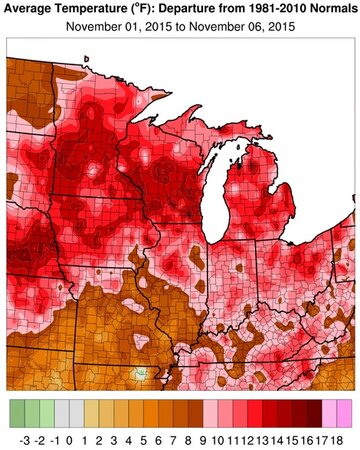I have followed this global warming story for the last 10 years or so, I have covered many scientific subjects and many subjects covered by the Paracast. I also work in a broad sense in the scientific community where when statements are made and need to be backed up with evidence, citing papers etc…. And the global warming debate is much like the debate of whether the UFO phenomena is real regardless of its origin.
For instance in the "Science world" UFOs are not considered real, the "Skeptics" in this case demand evidence, they want physical evidence but lacking physical evidence, any documentary evidence from pilots for instance is also not compelling, as the person in question could have misidentified the phenomena.
When radar and multiple witness sightings occur, the radar could have been a flock of birds, a temperature inversion whilst at the same time the witness misidentified something. In other words they claim no evidence exists but are largely unaware of the excellent cases and any physical evidence left behind. This is why a cosmologist like Hawking can say only lunatics see UFOs (I am paraphrasing here) when one of his distinguished colleagues Michio Kaku has looked into the subject himself and found many cases compelling. In other words, an Air Force Pilot or Astronaut are not lunatics.
On the other side lets take global warming. I am firmly in the skeptic camp on this front for one reason, the scientists promoting Global Warming alarm act very much like the skeptics or debunkers in the anti UFO camp.
They act unscientific first of all by claiming a consensus exists. The consensus is also that UFOs are not real. It used to be consensus that women should not vote. These consensus arguments are always used when there is a lack of genuine proof. The alarmists ignore science, by claiming that CO2 is a pollutant and that we MUST lower the atmospheric concentration of this evil molecule before the earth overheats.
Over geological time periods temperature & CO2 concentration simply do not have a lock step relationship, that is not an argument that is fact. They also ignore the ecological benefits of CO2. Higher yields of crops, increase in vegetation, global greening and the receding desert. Should the UNIPCC get their way and lower the CO2 concentration to 150ppm or lower like they have expressed in official documents, then life on Earth would start to die off as many plants cannot exist in an atmosphere with so little CO2. As plants die off and then animals. This anti scientific mind set has co opted so many environmentalists these days that in order to be considered an environmentalist, you must identify with the group calling for a ban on fossil fuels.
Fossil fuels MUST be replaced because of the CO2 they emit. If we were to ban all fossil fuels today, or in 5 years or 10 years, what would follow would be mass die offs. All of our farming techniques to feed our populations require of fossil fuels, there is no replacement available.
Now this leads to another topic that has also been covered on this thread, over population. If we go back in time to Giammaria Ortes or to Thomas Malthus, or even to the writings of "The Old Oligarch" population control was always considered a major problem. From having too many people pushing down on the breast of Mother Earth to rising living standards and wealth of the ordinary man, elites have always considered population the road to ruin. We also have more contemporary examples, in Science we have the likes of James Hansen and more popular of all, the ultimate doomsayer of humanity, Paul Erlich. Both these men couldn’t predict a day would follow the night, there are so many examples of the irrational predictions they make, it could almost be called cruel to bring them up. But again like so many people, they fail to comprehend that science and technology can improve the lives of people, that population means historically….wealth. Consider the elites today, the wonderful British Royal Family, who often talk of over population and one particular member, wishes to return as an Ebola virus to help thin out the stock.
So what are we left with just on the global warming front? We have first a very tentative hypothesis which says CO2 means higher temperatures. Well it may make a difference but in all likely hood it is impossible to detect a human fingerprint to assign a percentage of warming to human factors. Computer models are being used to estimate the warming expected and these models over predict the real world by factors of 2, 4, 8 or higher. So we are meant to use computer models to enact policy? Lunacy.
We have the benefits of slight warming clearly understood, in the UK given the stupid green energy policies enacted here, means that prices for heating the homes of people have shot up, so we can expect this many deaths of our most vulnerable people because of cold, and because they cannot afford the energy thanks to the green tariffs enacted.
Around the world these days the usual suspects point to each weather event and claim it proves global warming, or climate change. Just imagine being in an argument where the public are told that more rain, less rain, more snow, less snow, more heat, less heat, more hail less hail, terrorism, murders, rapes, car theft, late trains (and I could cite dozens of papers funded because in the grant proposal the word climate was carefully inserted) are all proofs of their hypothesis. Its an argument that cannot be lost but it is absurd.
In Paris soon leaders will all turn up for a jolly old meeting just before Christmas where millions of dollars will be spent, potentially enacting policies which will cost trillions annually, to save us from a problem that exists inside a computer system and not in the real world. I look around the world today and see the same weather patters and variation as was in existence when I started school, no change. This is a threat that exists only in the minds of wealthy westerners; it’s a hypochondria of the world that developing nations do not care about, because they have real problems like poverty and they need to get their populations out of said poverty. That is where money should be spent.
In 10 years time I will come back to this blog where the alarmist supporters will still be here. However in 2025 they will be saying "we warned you that by 2035 if we don’t cut CO2 drastically we will get sea level rise" etc.… In other words, the only thing that will have changed would the date for this impending catastrophe. Just like has recently with Michael Mann, Al Gore, Prince Edward, it’s the easiest game to play on Earth, wait until the next tipping point date comes, and then simply add 10 or 20 years.
I am not waiting 20 years, I have officially had enough of this. It is time that money were put to better use and not used to enact policies that will ultimately take away peoples freedoms.
 Keep in mind that Global Warming is no longer an object of derision by the disinformation folks (only those holding onto long-outdated press releases are maintaining that fiction). Global Warming is so obvious in everyone's everyday lives that it's acknowledged, though the anthropogenic part is now the main focus of the denial.
Keep in mind that Global Warming is no longer an object of derision by the disinformation folks (only those holding onto long-outdated press releases are maintaining that fiction). Global Warming is so obvious in everyone's everyday lives that it's acknowledged, though the anthropogenic part is now the main focus of the denial.


 Keep in mind that Global Warming is no longer an object of derision by the disinformation folks (only those holding onto long-outdated press releases are maintaining that fiction). Global Warming is so obvious in everyone's everyday lives that it's acknowledged, though the anthropogenic part is now the main focus of the denial.
Keep in mind that Global Warming is no longer an object of derision by the disinformation folks (only those holding onto long-outdated press releases are maintaining that fiction). Global Warming is so obvious in everyone's everyday lives that it's acknowledged, though the anthropogenic part is now the main focus of the denial.



